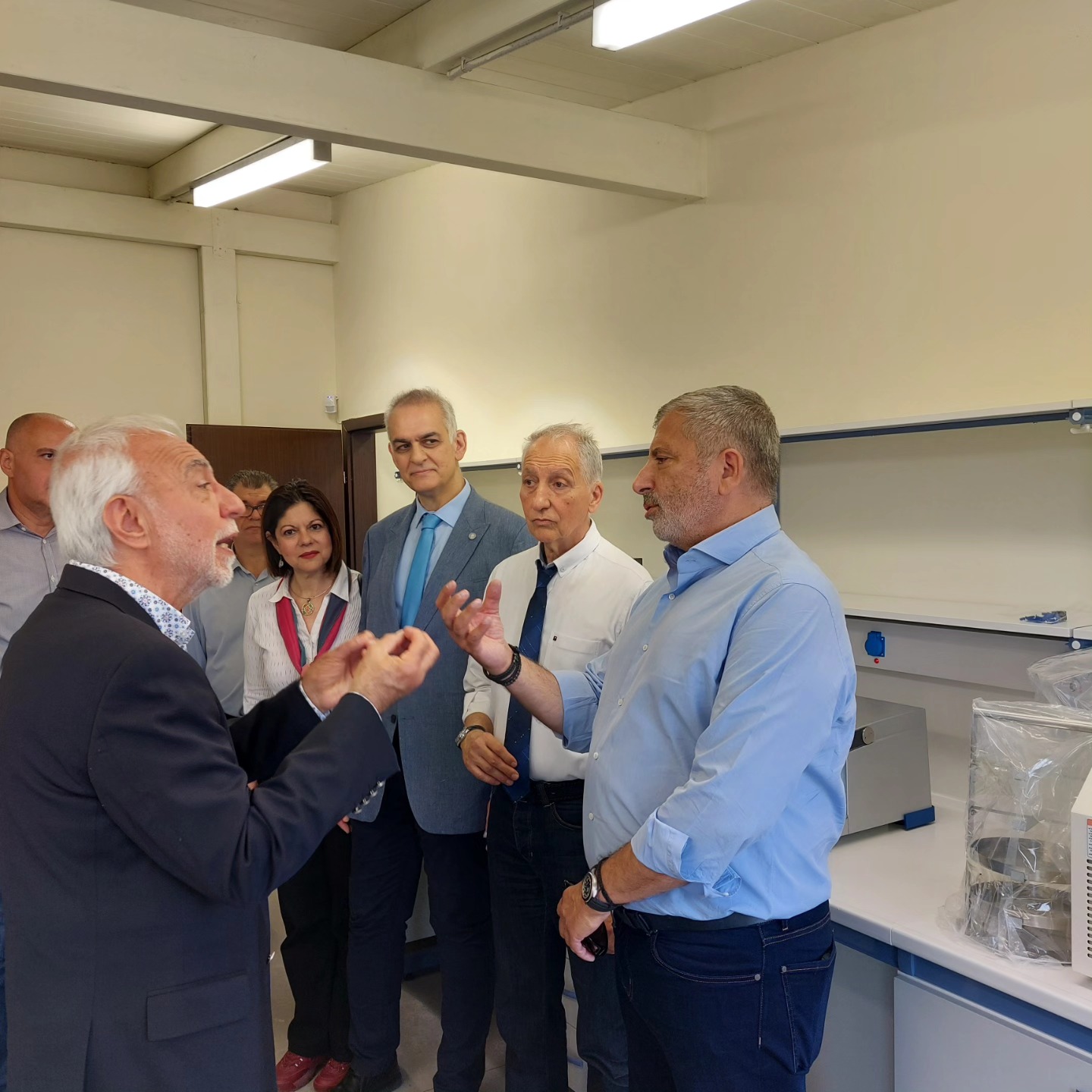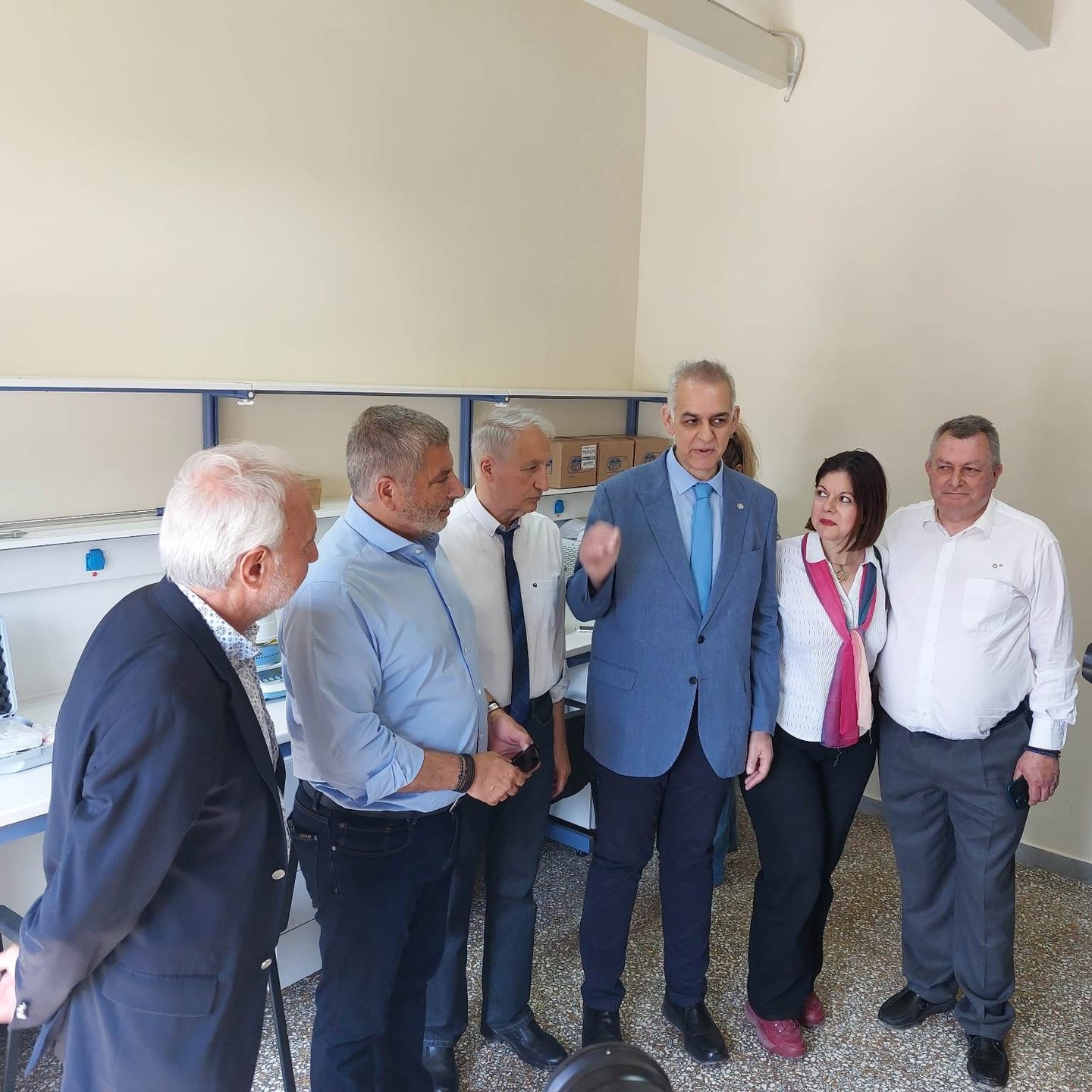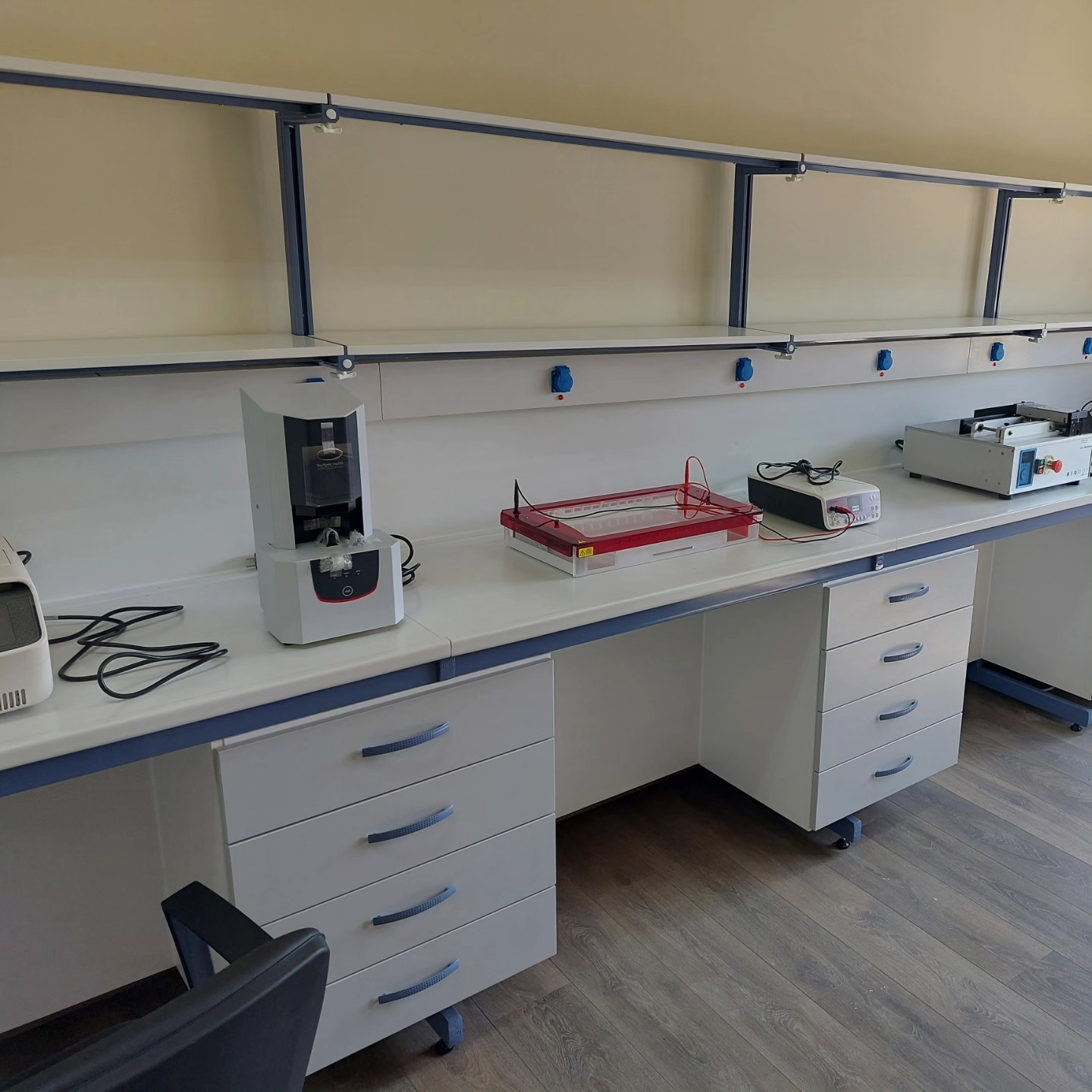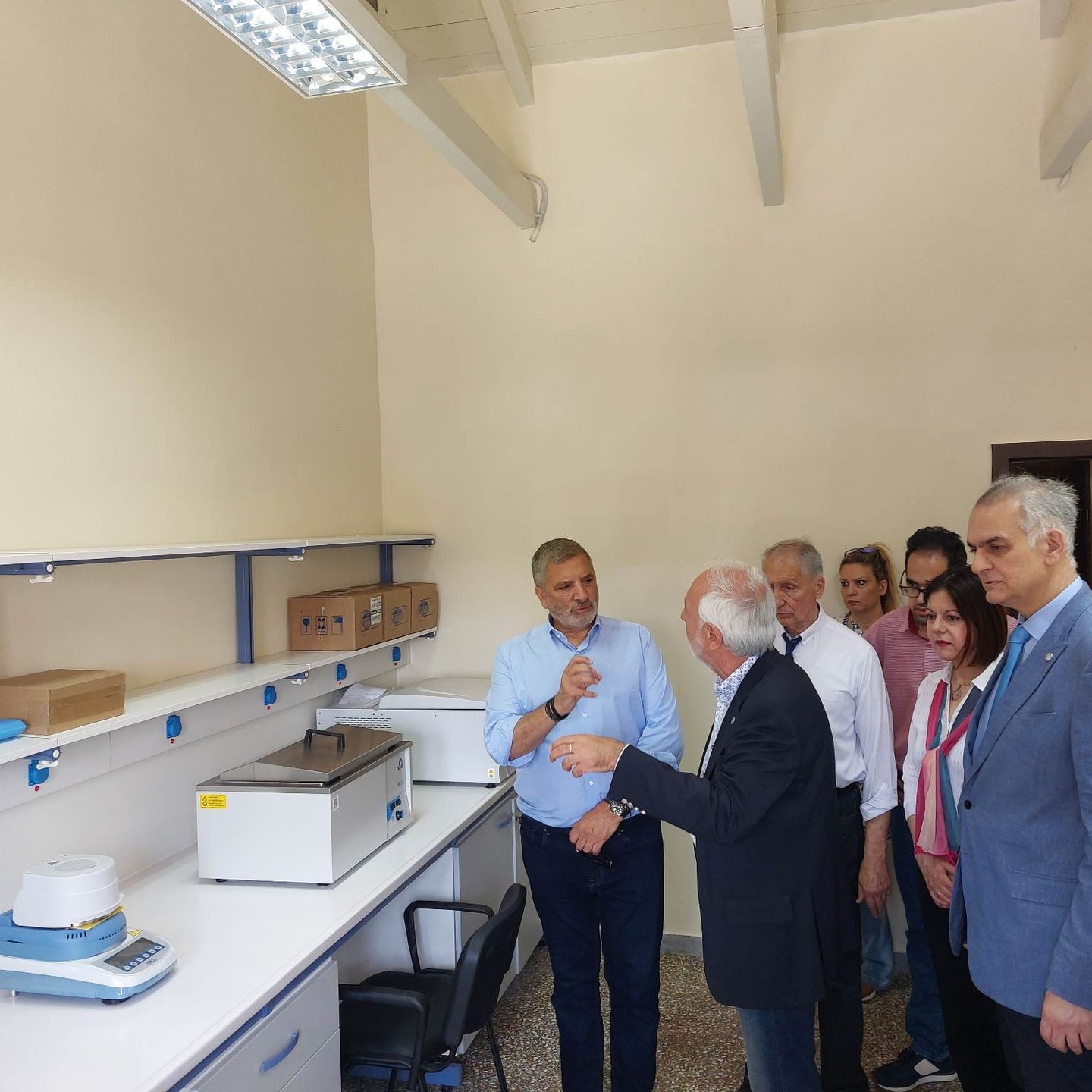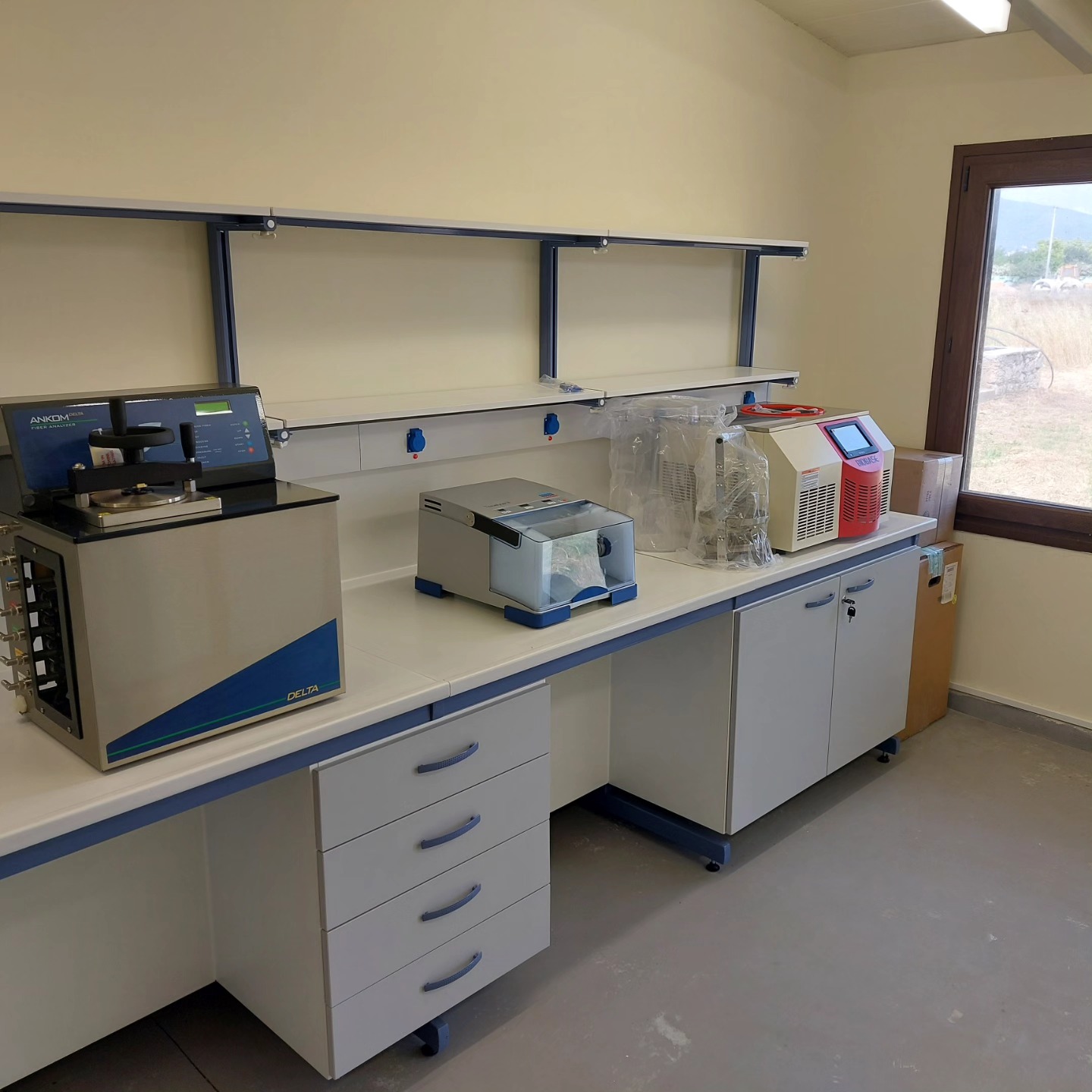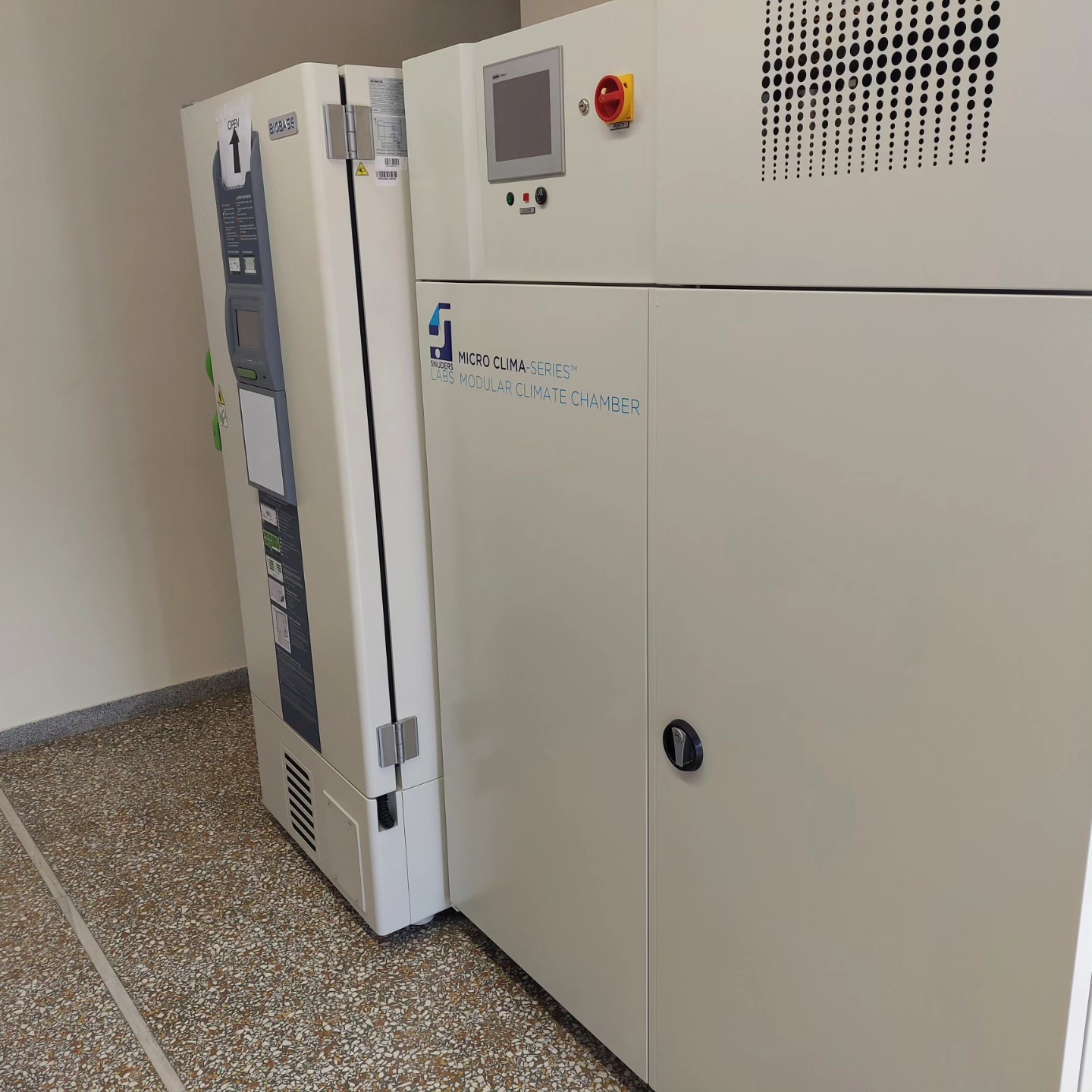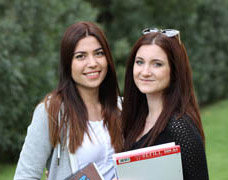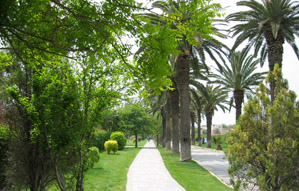Visit of the Regional Governor of Attica at the Research, Innovation and Entrepreneurship Hub in the Agri-food Sector, entitled “AGROKNOW HUB” of the Agricultural University of Athens in Spata
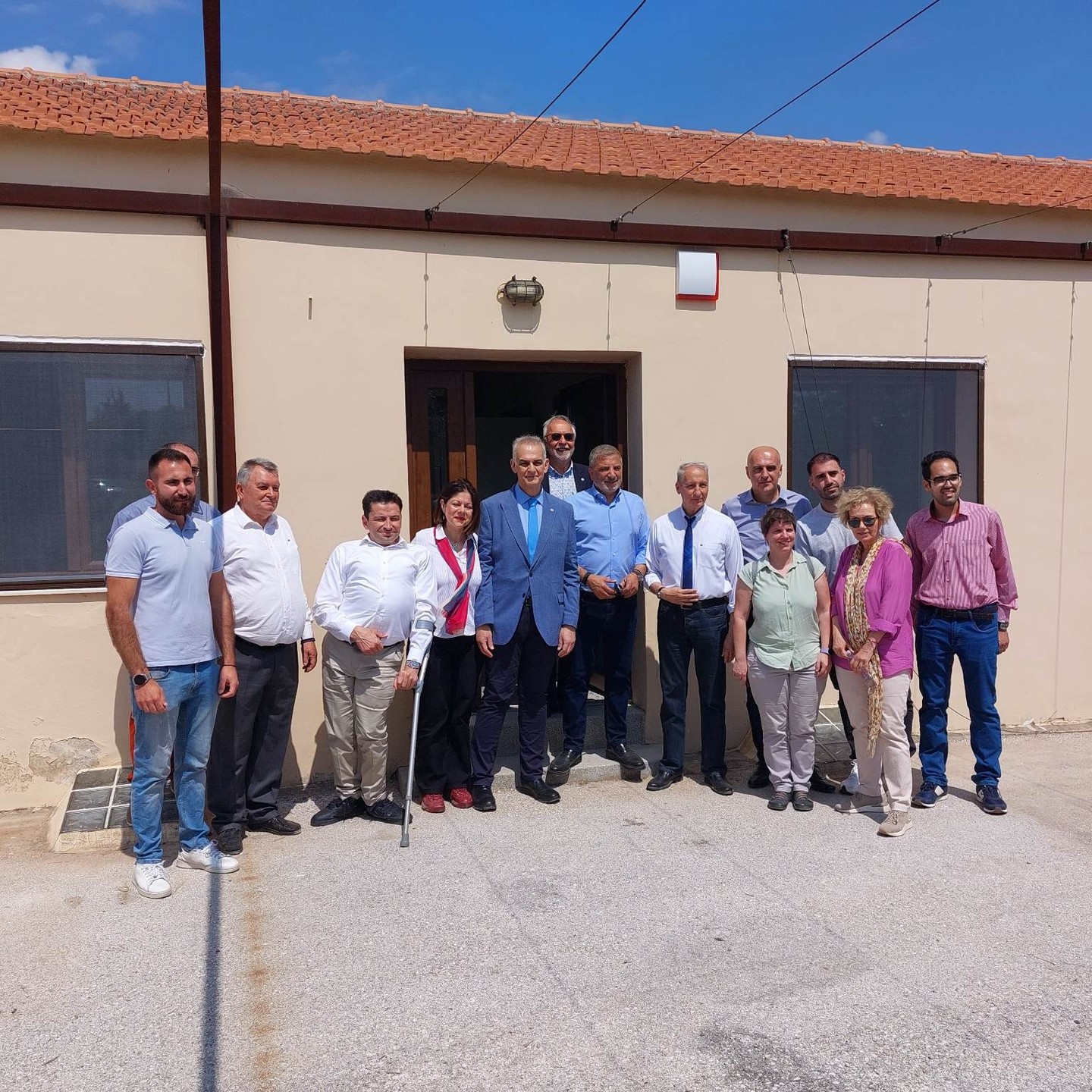
On Wednesday, May 31 2023, the Rector of the Agricultural University of Athens, Mr. Spyridon Kintzios, Professor, welcomed the Regional Governor of Attica, Mr. George Patoulis, at the Research, Innovation and Entrepreneurship Hub in the Agri-food Sector, entitled “AGROKNOW HUB” of the Agricultural University of Athens in Spata. In the framework of the Call for Proposal ATT CODE 100, under the title: “Infrastructure and Structures Development, in key areas and sections of Research and Innovation, in accordance with the Implementation of RIS3, of the Attica Region”, the sum of financing for the Hub of the Agricultural University of Athens has amounted to 1 million euro, providing the University with the appropriate scientific equipment.
Throughout the visit of Mr. Patoulis, the Deputy Regional Governor of East Attica, Mr. Athanasios Avgerinos, the Vice-Regional Governor for Economic Affairs and the Chairman of the Economic Committee of Attica, Mr. Nikolaos Peppas, the Mayor of the Municipality of Spata – Artemidos, Mr. Dimitris Markou and the candidate for Regional Councillor, Ms. Aggeliki – Loukia Petrou – Gkini have been present. On behalf of the Agricultural University of Athens, the Vice Rector for the European University, Internationalization and Student Affairs, Ms. Helen Miliou, Professor, the Managing Director of the Property Management and Development Company of the Agricultural University of Athens and former Vice Rector, Mr. Iordanis Chatzipavlidis, Ms. Garyfalia Economou-Antonaka, Professor, Mr. Emmanouil Malandrakis, Assistant Professor and Ms. Georgia Mosxopoulou, Assistant Professor, in addition to a number of members of Living Labs, have given their presence.
The attendants during the visit have had the opportunity of being shown around the University Building in Spata, wherein the first class technological laboratory equipment has already been established at laboratory spaces of the specific building. The appliances and the laboratory machinery shall technically contribute to the improvement of manufacturing products of agriculture, livestock farming, aquaculture and fisheries at Regional, national and international level, highlighting their quality and drawing up a central strategy, which will mark the seal of trust and reliability for the buyers and consumers all over the world.
The specific research infrastructure is to gather scientists, executives, new researchers, post – doctoral researchers, PhD Candidates and human capital engaged in different specialties for the achievement of the best result that is going to introduce a new perspective into research, by means of the holistic participation of all the interested parties in the agrifood sector (researchers, consultants, agricultural enterprises, farmers, suppliers, logistics businesses, policy makers and consumers).
Such a goal shall be accomplished by the use of (LL)/Living Labs associated with the development of research questions and issues, the validity and reliability test of various research tools besides the transformation of the research results into consistent, meaningful and new knowledge for all the bodies, researchers and local factors involved. It is well known that knowledge transfer from the laboratory inasmuch the study and research areas to society/user forms a complex and difficult process. Indeed, due to that occasion, a lot of new promising products have failed to yield the pertinent financial outcome, upon their appearance in the market.
Living Labs offer an experimentation environment and co-creation addressed to real users and actual situations, wherein along with researchers, companies and public organizations, they are all provided with the chance to explore in common new solutions, latest products, advanced services or contemporary business models. Furthermore, the structures of Living Labs strengthen social participation, foster research and innovation, attaining the participation of academic, small and medium sized in addition to big undertakings, public organizations in a proceeding of open innovation, which because of taking place in real situations, its results bring immediate impact. In these ways, Living Labs aim at contributing to the development of a current Innovation System, to which users and citizens from simple recipients change into active participants. This objective is to be actually achieved by the use of the aforementioned equipment. Within the framework of the particular action, sectors such as Smart Agriculture, traceability of Foodstuffs, Circular Bio-economy, etc shall thrive.
